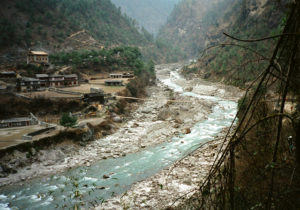Interstate river water governance in India so far is characterized by responding to contingencies posed by interstate river water disputes. The politics and the governance practices are driven and shaped by processes and instruments of disputes and their resolution. As a consequence, the governance ecosystem lacks an explicit and definitive approach towards enabling and nurturing interstate river water cooperation. This is can no longer continue. India’s 20 river basins are now shared by 29 states. The increasingly interdependent hydro-geographies pose new and complex challenges. The ambitious plans of river rejuvenation, inland navigation, interbasin transfer, and even the intended paradigmatic shift to integrated water resource management require reliable robust and resilient mechanisms for interstate collaboration and coordination.
https://www.youtube.com/watch?v=Y0eiReUDkrw
Interstate river water governance in India so far is characterized by responding to contingencies posed by interstate river water disputes. The politics and the governance practices are driven and shaped by processes and instruments of disputes and their resolution. As a consequence, the governance ecosystem lacks an explicit and definitive approach towards enabling and nurturing interstate river water cooperation. This is can no longer continue. India’s 20 river basins are now shared by 29 states. The increasingly interdependent hydro-geographies pose new and complex challenges. The ambitious plans of river rejuvenation, inland navigation, interbasin transfer, and even the intended paradigmatic shift to integrated water resource management require reliable robust and resilient mechanisms for interstate collaboration and coordination.
 Interstate river water governance in India so far is characterized by responding to contingencies posed by interstate river water disputes. The politics and the governance practices are driven and shaped by processes and instruments of disputes and their resolution. As a consequence, the governance ecosystem lacks an explicit and definitive approach towards enabling and nurturing interstate river water cooperation. This is can no longer continue. India’s 20 river basins are now shared by 29 states. The increasingly interdependent hydro-geographies pose new and complex challenges. The ambitious plans of river rejuvenation, inland navigation, interbasin transfer, and even the intended paradigmatic shift to integrated water resource management require reliable robust and resilient mechanisms for interstate collaboration and coordination.
Interstate river water governance in India so far is characterized by responding to contingencies posed by interstate river water disputes. The politics and the governance practices are driven and shaped by processes and instruments of disputes and their resolution. As a consequence, the governance ecosystem lacks an explicit and definitive approach towards enabling and nurturing interstate river water cooperation. This is can no longer continue. India’s 20 river basins are now shared by 29 states. The increasingly interdependent hydro-geographies pose new and complex challenges. The ambitious plans of river rejuvenation, inland navigation, interbasin transfer, and even the intended paradigmatic shift to integrated water resource management require reliable robust and resilient mechanisms for interstate collaboration and coordination.
